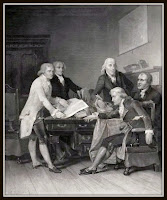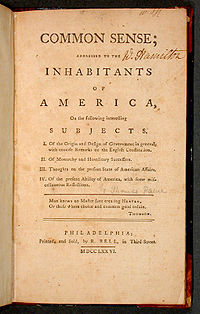 |
| Signing of the Declaration |
"We hold these truths to be self-evident, that all men are created equal, that they are endowed by their Creator with certain unalienable Rights, that among these are Life, Liberty and the pursuit of Happiness. That to secure these rights, Governments are instituted among Men, deriving their just powers from the consent of the governed. That whenever any Form of Government becomes destructive of these ends, it is the Right of the People to alter or to abolish it, and to institute new Government, laying its foundation on such principles and organizing its powers in such form, as to them shall seem most likely to effect their Safety and Happiness."
 Does this sound familiar? Don't be surprised if it does because this little piece is actually part of the Declaration of Independence or also the Unanimous Declaration of the thirteen united States of America, as it was known back in 1776. As most people know the United States declared its independence from Britain on July 4, 1776.
Does this sound familiar? Don't be surprised if it does because this little piece is actually part of the Declaration of Independence or also the Unanimous Declaration of the thirteen united States of America, as it was known back in 1776. As most people know the United States declared its independence from Britain on July 4, 1776. So what exactly are the "unalienable rights"? Well, an unalienable right is a basic human right which cannot be taken away by government, in Benjamin Franklin's view, they also cannot be given away by the person. Some of these rigths are mentioned in the Declaration such as the right of Life, Liberty, and the Pursuit of Happiness. A government is established to secure these rights. The possession of property and having it protected is also one of the natural, inherited and unalienable rights of men.
As you can see all men were created equal and for many different reasons some men to seen more important then others in someone's eyes, but what we all should remember is that no one os above another person, no matter who.
As you can see all men were created equal and for many different reasons some men to seen more important then others in someone's eyes, but what we all should remember is that no one os above another person, no matter who.






